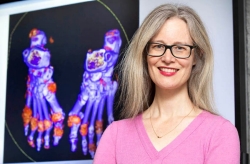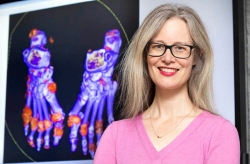Professor Lisa Stamp, University of Otago, Christchurch - Principal Investigator
Professor Nicola Dalbeth - Principal Investigator
Drs Anne Horne and Rachel Murdoch - Study Doctors
Harriet Howard - Study Coordinator
The University of Auckland is currently conducting a study for people with gout. The study is looking at the best way to prescribe allopurinol. During the one year study, the research team can work with you to get you on the right dose of allopurinol to control your gout.
The study involves visits to the Clinical Research Centre at the University of Auckland every three months over one year. You may also need monthly blood tests are taken between visits at your community laboratory to monitor your progress. Study staff will be available to advise and support you while you get established on the correct dose of allopurinol to control your gout.
If you have gout, live in the Auckland area and are interested in being part of this research, please contact the study nurse to get more information: 021 0849 6887. Harriet is happy to answer any questions you may have about the study without any obligation to take part.
This study has been funded by the Health Research Council of New Zealand and has received ethical approval from the New Zealand Health and Disability Ethics Committee.
Recruitment is ongoing for this study





